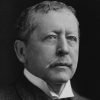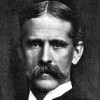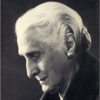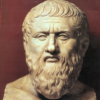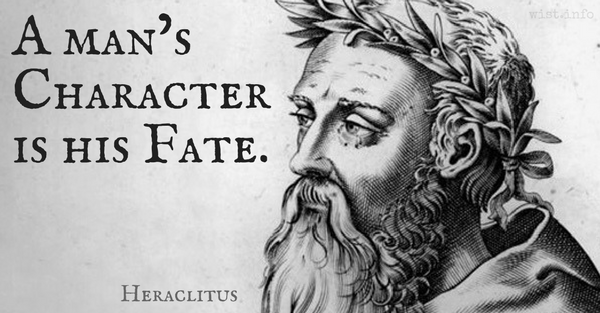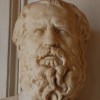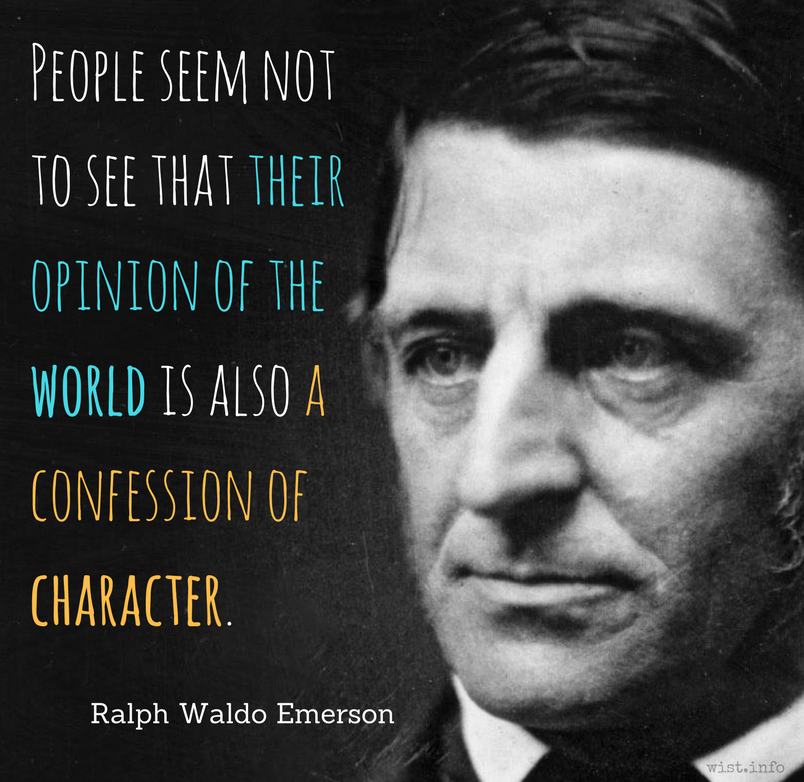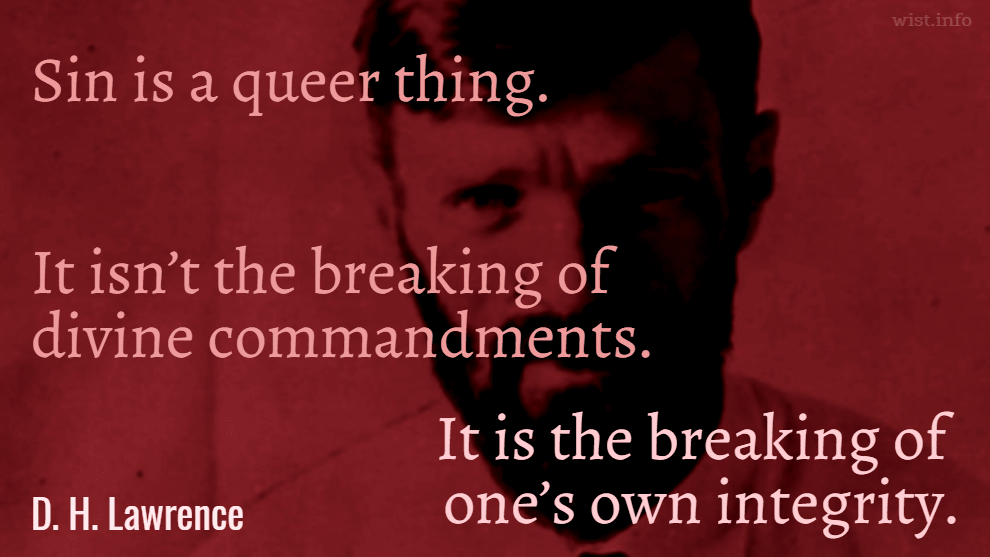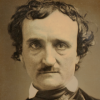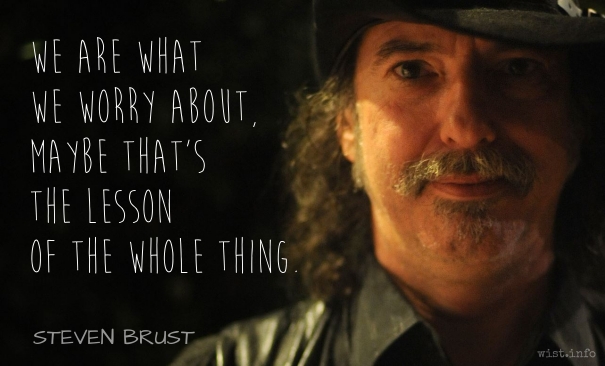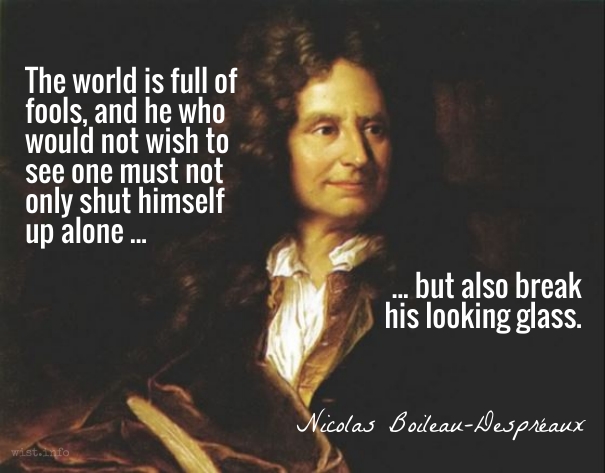But why speak of others? Let me now return to myself.
[Sed quid ego alios? Ad me ipsum iam revertar.]
Marcus Tullius Cicero (106-43 BC) Roman orator, statesman, philosopher
De Senectute [Cato Maior; On Old Age], ch. 13 / sec. 45 (13.45) (44 BC) [tr. Falconer (1923)]
(Source)
(Source (Latin)). Alternate translations:
But it is not nede also to remembre in what thynges the othir olde men tokyn their honeste delectacyons. Therfor I shall come ayen to speke of myself.
[tr. Worcester/Worcester/Scrope (1481)]
But wherefore speak I so much of others? I will now returne to my selfe.
[tr. Austin (1648)]
But what have I to do with others, let me return now to myself.
[tr. J. D. (1744)]
But why should I quote others, and not rather return and speak of myself?
[tr. Logan (1744)]
But to pass from the practice of others to my own ....
[tr. Melmoth (1773)]
But why do I mention others? I will now return to myself.
[Cornish Bros. ed. (1847)]
But why do I refer to others? let me now return to myself.
[tr. Edmonds (1874)]
But why am I talking about others? I now return to my own case.
[tr. Peabody (1884)]
But why mention others? I will come back to my own case.
[tr. Shuckburgh (1895)]
Why speak of these?
Let's take myself.
[tr. Allison (1916)]
But enough of others -- let me return to myself!
[tr. Grant (1960, 1971 ed.)]
But why speak of other men? Let me revert to my own case.
[tr. Copley (1967)]
Enough of other people. Let me speak now of my own experience.
[tr. Cobbold (2012)]
But again I don't have to talk about the world famous. I can provide personal examples.
[tr. Gerberding (2014)]
I’ll now revert only to myself,
And put all the others on the shelf.
[tr. Bozzi (2015)]
Quotations about:
self
Note not all quotations have been tagged, so Search may find additional quotes on this topic.
The only gift is a portion of thyself. Thou must bleed for me. Therefore the poet brings his poem; the shepherd, his lamb; the farmer, corn; the miner, a gem; the sailor, coral and shells; the painter, his picture; the girl, a handkerchief of her own sewing.
Ralph Waldo Emerson (1803-1882) American essayist, lecturer, poet
“Gifts,” Essays: Second Series, No. 5 (1844).
(Source)
We want perfection in other people, and yet we do not put right our own failings. We want to see others firmly corrected, but we refuse correction ourselves. We take offence when permission is given to others, but we do not want our own requests refused. We want rules to check the activities of others, but we are indignant at restrictions on ourselves.
[Libenter videmus alios perfectos, sed tamen proprios non emendamus defectus. Volumus quod alii districte corrigantur, et nos ipsi corrigi nolumus, aut negari quod petimus. Alios restringi per statuta volumus, et ipsi nullatenus patimur amplius cohiberi.]
Thomas à Kempis (c. 1380-1471) German-Dutch priest, author
The Imitation of Christ [De Imitatione Christi], Book 1, ch. 16, v. 2ff (1.16.2-3) (c. 1418-27) [tr. Knott (1962)]
(Source)
(Source (Latin)). Alternate translations:
We would gladly have others perfect, but will not amend our own defaults. We would that others should be straitly corrected for their offences, but we will not be corrected. It misliketh us that others have liberty, but we will not be denied of that we ask. We would also that others should be restrained according to the statutes, but we in nowise will be restrained.
[tr. Whitford/Raynal (1530/1871)]
We would gladly have others perfect, yet we will not amend our own faults. We desire others to be strictly corrected for their offenses, yet we will not be corrected. We dislike it that others have liberty, yet we will not be denied what we ask. We desire that others should be restrained according to the laws, yet we will in no way be restrained.
[tr. Whitford/Gardiner (1530/1955)]
It is injustice to expect that in another which thou hast not in thy self, to looke for perfection in others, and yet not to amend imperfections in our selves. We will have others severely punisht, and will not amend our selves; the large liberty of others disliketh us, and yet we will not have our desires deni'd us, we will have rigorous Lawes imposed upon others, but in no sort will we our selves be restrained.
[tr. Page (1639), 1.16.8-9]
And, indeed, nothing is more common, than to express exceeding Zeal in amending our Neighbours, and mighty Indignation against Their Vices or Imperfections, while at the same time we neglect the beginning at Home, and either quite overlook, or seem highly contented with our own. We set up for Reformers, declaim at the Wickendess of the Age, and are all for suppressing and punishing it by vigorous Laws; and yet are unwilling that any Check or Restraint should be put upon our own Freedoms.
[tr. Stanhope (1696; 1706 ed.)]
But we require perfection in the rest of mankind, and take no care to rectify the disorders of our own heart; we desire that the faults of others should be severely punished, and refuse the gentlest correction ourselves; we are offended at their licentiousness, and yet cannot bear the least opposition to our own immoderate desires. We would subject all to the control of rigorous statute and penal laws, but will not suffer any restraint upon our own actions.
[tr. Payne (1803), 1.16.3]
We would willingly have others perfect, and yet we amend not our own faults. We will have others severely corrected, and will not be corrected ourselves. The large liberty of others displeaseth us; and yet we will not have our own desires denied us. We will have others kept under by strict laws; but in no sort will ourselves be restrained.
[ed. Parker (1841)]
We willingly require perfection in the rest of mankind, and yet do not rectify the disorders of our own hearts. We desire that the faults of others should be severely punished, and refuse the gentlest correction ourselves. We are offended at their licentiousness, and yet cannot bear the least denial of our own immoderate desires. We would subject all to the control of rigorous statutes, but suffer no restraint upon our own action.
[tr. Dibdin (1851)]
We would fain have others perfect, and yet we amend not our own defects. We would have others strictly corrected, but will not be corrected ourselves. The large liberty of others displeases us, and yet we would not be denied anything we ask for. We wish others to be bound down by laws, and we suffer ourselves to be in no sort restrained.
[ed. Bagster (1860)]
We are ready to see others made perfect, and yet we do not amend our own shortcomings. We will that others be straitly corrected, but we will not be corrected ourselves. The freedom of others displeaseth us, but we are dissatisfied that our own wishes shall be denied us. We desire rules to be made restraining others, but by no means will we suffer ourselves to be restrained.
[tr. Benham (1874)]
We are desirous to have others perfect, and yet we amend not our own faults. We will have others severely corrected, and will not be corrected ourselves. The large liberty of others displeaseth us; and yet we will not have our own desires denied us. We will have others kept under by strict laws; but in no sort will we ourselves be restrained.
[tr. Anon. (1901)]
We want them to be perfect, yet we do not correct our own faults. We wish them to be severely corrected, yet we will not correct ourselves. Their great liberty displeases us, yet we would not be denied what we ask. We would have them bound by laws, yet we will allow ourselves to be restrained in nothing.
[tr. Croft/Bolton (1940)]
We would readily have others perfect and yet not amend our own defects. We want others rigidly corrected and are unwilling to be corrected ourselves. The wide freedom of others displeases us, and yet we would not be denied whatever we ask. We wish others to be bound by rules, and will ourselves in no way be held in.
[tr. Daplyn (1952)]
For we require other people to be perfect, but do not correct our own faults. We wish to see others severely reprimanded; yet we are unwilling to be corrected ourselves. We wish to restrict the liberty of others, but are not willing to be denied anything ourselves. We wish others to be bound by rules, yet we will not let ourselves be bound.
[tr. Sherley-Price (1952)]
We like to have everybody around us quite perfect, but our own faults -- we never seem to correct them. Tom, Dick and Harry must be strictly called to order, but we aren't fond of being called to order ourselves. It is always the other man that has too much rope given him -- our wishes must not be thwarted; rules for everybody else, but our own liberties must not be abridged for a moment.
[tr. Knox-Oakley (1959), 1.16.3]
Though quick to expect perfection in others, we take little care to correct our own shortcomings. We wouidl have others strictly corrected, but not ourselves. The wide freedom of others displeases us, yet we wish to be denied nothing that we ourselves desire. We would have others under the restraint of the rule while unwilling ourselves to be under any sort of restraint.
[tr. Rooney (1979)]
We would willingly have others be perfect, and yet we fail to correct our own faults. We want others to be strictly corrected, and yet we are unwilling to be corrected ourselves. Other peoples' far-ranging freedom annoys us, and yet we insist on having our own way. We wish others to be tied down by rules, and yet we will not allow ourselves to be held in check in any way at all.
[tr. Creasy (1989)]
Somewhere — in desolate wind-swept space —
In Twilight-land — in No-man’s land —
Two hurrying Shapes met face to face,
And bade each other stand.
“And who are you?” cried one a-gape,
Shuddering in the gloaming light.
“I know not,” said the second Shape,
“I only died last night!”Thomas Bailey Aldrich (1836-1907) American writer, poet, critic, editor
“Identity,” Poems, Part 2 “Interludes” (1885)
(Source)
Your computer is a backup of your soul, a multilayered, menu-driven representation of who you are, who you care about, and how you sin.
Michael Marshall Smith (b. 1965) English author, screenwriter [writes as Michael Marshall, M. M. Smith, Michael Rutger]
The Lonely Dead [The Upright Man], ch. 11 (2004) [as Michael Marshall]
(Source)
I think of all the choices I never knew. And those I let be made for me — to please, from fear, for love. Where did they disappear to, those choices that I never made? They are all part of who I am. They are the legacy I leave behind, they are the finished portrait of myself I cannot change.
In an age where there is much talk about “being yourself” I reserve to myself the right to forget about being myself, since in any case there is very little chance of my being anybody else. Rather it seems to me that when one is too intent on “being himself” he runs the risk of impersonating a shadow.
Thomas Merton (1915-1968) French-American religious and writer [a.k.a. Fr. M. Louis]
“Day of a Stranger,” The Hudson Review (Summer 1967)
(Source)
What we do belongs to what we are; and what we are is what becomes of us.
But immediately upon this I observed that, whilst I thus wished to think that all was false, it was absolutely necessary that I, who thus thought, should be somewhat; and as I observed that this truth, I think, therefore I am (COGITO ERGO SUM), was so certain and of such evidence that no ground of doubt, however extravagant, could be alleged by the sceptics capable of shaking it, I concluded that I might, without scruple, accept it as the first principle of the philosophy of which I was in search.
[Mais aussitôt après je pris garde que, pendant que je voulois ainsi penser que tout étoit faux, il falloit nécessairement que moi qui le pensois fusse quelque chose; et remarquant que cette vérité, je pense, donc je suis, étoit si ferme et si assurée, que toutes les plus extravagantes suppositions des sceptiques n’étoient pas capables de l’ébranler, je jugeai que je pouvois la recevoir sans scrupule pour le premier principe de la philosophie que je cherchois.]
René Descartes (1596-1650) French philosopher, mathematician
Discourse on Method [Discours de la méthode], Part 4 (1637) [tr. Veitch (1850)]
(Source)
(Source (French)). Alternate translations:
But presently after I observ’d, that whilst I would think that all was false, it must necessarily follow, that I who thought it, must be something. And perceiving that this Truth, I think, therefore, I am, was so firm and certain, that all the most extravagant suppositions of the Scepticks was not able to shake it, I judg’d that I might receive it without scruple for the first principle of the Philosophy I sought.
[Newcombe ed. (1649)]
But immediately afterwards I noticed that whilst I thus wished to think all things false, it was absolutely essential that the "I" who thought this should be somewhat, and remarking that this truth "I think, therefore I am" was so certain and so assured that all the most extravagant suppositions brought forward by the sceptics were incapable of shaking it, I came to the conclusion that could receive it without scruple as the first principle of the Philosophy for which I was seeking.
[tr. Haldane & Ross (1911)]
But immediately upon this I noticed that while I was trying to think everything false, it must needs be that I, who was thinking this, was something. And observing that this truty "I am thinking, therefore I exist" was so solid sceptics could not overthrow it, I judged that I need not scriple to accept it as the first principle of philosophy that I was seeking.
[tr. Ascombe & Geach (1971)]
But immediately I noticed that while I was endeavoring in this way to think that everything was false, it was necessary that I, who was thinking this, was something. And observing that this truth, "I am thinking, therefore I exist" was so firm and sure that all the most extravagant suppositions of the sceptics were incapable of shaking it, I decided that I could accept it without scruple as the first principle of the philosophy I was seeking.
[tr. Cottingham, Stoothoff (1985)]
Nothing I accept about myself can be used against me to diminish me.
Audre Lorde (1934-1992) American writer, feminist, civil rights activist
“Eye to Eye: Black Women, Hatred, and Anger,” Sister Outsider: Essays and Speeches (1984)
(Source)
All things are tolerable which others have borne and are bearing.
[Sed significat tolerabilia esse, quae et tulerint et ferant ceteri.]
Marcus Tullius Cicero (106-43 BC) Roman orator, statesman, philosopher
Tusculan Disputations [Tusculanae Disputationes], Book 3, ch. 23 (3.23) / sec. 57 (45 BC) [tr. Yonge (1853)]
(Source)
(Source (Latin)). Alternate translations:
- "Those things are in themselves tolerable, which others have born, and do bear." [tr. Wase (1643)]
- "All things are tolerable which others have borne and can bear." [tr. Main (1824)]
- "What others have endured and endure must be tolerable." [tr. Otis (1839)]
- "Things are tolerable which others have borne and are bearing." [tr. Peabody (1886)]
- "The circumstances at hand are indeed tolerable, since others have tolerated them and continue to do so." [tr. Graver (2002)]
What vitiates nearly all that is written about antisemitism is the assumption in the writer’s mind that he himself is immune to it. “Since I know that antisemitism is irrational,” he argues, “it follows that I do not share it.” He thus fails to start his investigation in the one place where he could get hold of some reliable evidence — that is, in his own mind.
George Orwell (1903-1950) English writer [pseud. of Eric Arthur Blair]
“Antisemitism in Britain,” Contemporary Jewish Record (1945-04)
(Source)
It is not easy to be sure that being yourself is worth the trouble, but we do know it is our sacred duty.
Florida Scott-Maxwell (1883-1979) American-British playwright, author, psychologist
The Measure of My Days (1968)
(Source)
One must not always think so much about what one should do, but rather what one should be. Our works do not ennoble us; but we must ennoble our works.
Meister Eckhart (c. 1260-1328?) German theologian, philosopher, mystic [a.k.a. Johannes Eckhart von Hochheim; Eckhart; Eckehart]
Work and Being (14th C.)
Note: I haven't found a text by that name in Eckhart's bibliography, nor this quotation anywhere connected with anything but that title or none at all.
He who tries to be holy in order to be happy will assuredly be neither.
William Ralph Inge (1860-1954) English prelate [Dean Inge]
Christian Mysticism, Lecture 1 (1899)
(Source)
You can never leave home. You take it with you no matter where you go. Home is between your teeth, under your fingernails, in the hair follicles, in your smile, in the ride of your hips, in the passage of your breasts.
Maya Angelou (1928-2014) American poet, memoirist, activist [b. Marguerite Ann Johnson]
“The Art of Fiction,” Paris Review, #116, Interview with George Plimpton (1990)
(Source)
A person can go on living fairly well, seem to be a human being, be occupied with temporal matters, marry, have children, be honored and esteemed — and it may not be detected that in a deeper sense this person lacks a self. Such things do not create much of a stir in the world, for a self is the last thing the world cares about and the most dangerous thing of all for a person to show signs of having. The greatest hazard of all, losing one’s self, can occur very quietly in the world, as if it were nothing at all. No other loss can occur so quietly; any other loss — an arm, a leg, five dollars, a wife, etc. — is sure to be noticed.
Søren Kierkegaard (1813-1855) Danish philosopher, theologian
The Sickness unto Death, “The Forms of This Sickness, i.e., of Despair,” 1.a.1 (1849)
Alt. trans.:
- "A man may nevertheless be perfectly well able to live on, to be a mn, a it seems, to occupy himself with temporal things, get married, beget children, win honor and esteem -- and perhaps no one notices that in a deeper sense he lacks a self. About such a thing as that not much fuss made in the world for a self is the thing the world is least apt to inquire about, and the thing of all things the most dangerous for a man to let people notice that he has it. The greatest danger, that of losing one's own self, may pass off as quietly as if it were nothing; every other loss, that of an arm, a leg, five dollars, a wife, etc., is sure to be noticed." (Source)
- "But to become fantastic in this way, and therefore be in despair, although usually obvious, does not mean that a person may not continue living a fairly good life, to all appearances be someone, employed with temporal matters, get married, beget children, be honored and esteemed -- and one may fail to notice that in a deeper sense he lacks a self. Such things cause little stir in the world; for in the world a self is what one least asks after, and the thing it is the most dangerous of all to show signs of having. The biggest danger, that of losing oneself, can pass off in the world as quietly as if it were nothing; every other loss, an arm, a leg, five dollars, a wife, etc. is bound to be noticed." (Source)
Never let the facts alone obscure the truth of your narrative. The truth is what your life really felt like.
Maya Angelou (1928-2014) American poet, memoirist, activist [b. Marguerite Ann Johnson]
“The Art of Fiction,” Paris Review, #116, Interview with George Plimpton (1990)
(Source)
You can discover more about a person in an hour of play than in a year of conversation.
Plato (c.428-347 BC) Greek philosopher
(Spurious)
Frequently attributed to Plato, starting in the 1950s, but not found in his works. Earliest citation is as a Portuguese proverb, in A Polyglot of Foreign Proverbs, tr. Henry G. Bohn (1857): "Mais descobre huma hora de jogo, que hum anno de conversação." For more see here.
For the whole thing about matrimony is this: We fall in love with a personality, but we must live with a character. Behind the pretty wallpaper and the brightly painted plaster lurk the yards of tangled wire and twisted pipes, ready to run a short or spring a leak on us without a word of warning.
Peter De Vries (1910-1993) American editor, novelist, satirist
Mrs. Wallop (1970)
(Source)
Often misquoted as "The difficulty with marriage is that ..."
Be more concerned with your character than your reputation, because your character is what you really are, while your reputation is merely what others think you are.
John Wooden (1910-2010) American basketball player and coach
They Call Me Coach, ch. 9, epigram (1972)
(Source)
Man has no greater enemy than himself. I have acted contrary to my sentiments and inclination; throughout our whole lives we do what we never intended, and what we proposed to do, we leave undone.
Francesco Petrarca (1304-1374) Italian scholar and poet [a.k.a. Petrarch]
(Attributed)
(Source)
Quoted in Johann Georg Ritter von Zimmermann, An Examination of the Advantages of Solitude and of Its Operations, ch. 5 (1783) [tr. F.S. (1808)].
But in the main, I feel like a brown bag of miscellany propped against a wall. Against a wall in company with other bags, white, red and yellow. Pour out the contents, and there is discovered a jumble of small things priceless and worthless. A first-water diamond, an empty spool, bits of broken glass, lengths of string, a key to a door long since crumbled away, a rusty knife-blade, old shoes saved for a road that never was and never will be, a nail bent under the weight of things too heavy for any nail, a dried flower or two still a little fragrant.
In your hand is the brown bag. On the ground before you is the jumble it held — so much like the jumble in the bags, could they be emptied, that all might be dumped in a single heap and the bags refilled without altering the content of any greatly. A bit of colored glass more or less would not matter. Perhaps that is how the Great Stuffer of Bags filled them in the first place — who knows?
Zora Neale Hurston (1891-1960) American writer, folklorist, anthropologist
“How It Feels to Be Colored Me”, The World Tomorrow (May 1928)
(Source)
This simply means that there is some good in the worst of us and some evil in the best of us. When we discover this, we are less prone to hate our enemies. When we look beneath the surface, beneath the impulsive evil deed, we see within our enemy-neighbor a measure of goodness and know that the viciousness and evilness of his acts are not quite representative of all that he is. We see him in a new light. We recognize that his hate grows out of fear, pride, ignorance, prejudice, and misunderstanding, but in spite of this, we know God’s image is ineffably etched in being. Then we love our enemies by realizing that they are not totally bad and that they are not beyond the reach of God’s redemptive love.
Martin Luther King, Jr. (1929-1968) American clergyman, civil rights leader, social activist, preacher
“Loving Your Enemies,” Sermon, Dexter Avenue Baptist Church, Montgomery (25 Dec 1957)
(Source)
Man is so built that he cannot imagine his own death. This leads to endless invention of religions. While this conviction by no means proves immortality to be a fact, questions generated by it are overwhelmingly important. The nature of life, how ego hooks into the body, the problem of ego itself and why each ego seems to be the center of the universe, the purpose of life, the purpose of the universe — these are paramount questions, Ben; they can never be trivial. Science hasn’t solved them — and who am I to sneer at religions for trying, no matter how unconvincingly to me? Old Mumbo Jumbo may eat me yet; I can’t rule him out because he owns no fancy cathedrals. Nor can I rule out one godstruck boy leading a sex cult in an upholstered attic; he might be the Messiah. The only religious opinion I feel sure of is this: self-awareness is not just a bunch of amino acids bumping together!
Robert A. Heinlein (1907-1988) American writer
Stranger in a Strange Land, Part 4, ch. 33 [Jubal] (1961)
(Source)
In the "uncut" original version (1960): "Self-aware man is so built that he cannot believe in his own extinction ... and this automatically leads to endless invention of religions. While this involuntary conviction of immortality by no means proves immortality to be a fact, the questions generated by this conviction are overwhelmingly important ... whether we can answer them or not, or prove what answers we suspect. The nature of life, how the ego hooks into the physical body, the problem of the ego itself and why each ego seems to be the center of the universe, the purpose of life, the purpose of the universe -- these are paramount questions Ben; they can never be trivial. Science can't, or hasn't, coped with any of them -- and who am I to sneer at religions for trying to answer them, no matter how unconvincingly to me? Old Mumbo Jumbo may eat me yet; I can't rule Him out because He owns no fancy cathedrals. Nor can I rule out one godstruck boy leading a sex cult in an upholstered attic; he might be the Messiah. The only religious opinion that I feel sure of is this: self-awareness is not just a bunch of amino acids bumping together!"
Character is much easier kept than recovered.
Thomas Paine (1737-1809) American political philosopher and writer
The American Crisis, #13 (19 Apr 1783)
(Source)
To ensure moral salvation, it is primarily necessary to depend on oneself, because in the moment of peril we are alone. And strength is not to be acquired instantaneously. He who knows that he will have to fight, prepares himself for boxing and dueling by strength and skill; he does not sit still with folded hands.
What do I believe after all? What manner of man am I after all? What sort of show would I make after all, if the people around me knew my heart and all my secret thoughts? What sort of show then do I already make in the sight of Almighty God, who sees every man exactly as he is?
Charles Kingsley (1819-1875) English clergyman, historian, essayist, novelist (pseud. "Parson Lot")
The Good News of God, Sermon 6 “Worship [Isaiah 1:12-13]” (1881)
(Source)
A man is what he is, not what men say he is. His character no man can touch. His character is what he is before his God and his Judge; and only himself can damage that. His reputation is what men say he is. That can be damaged; but reputation is for time, character is for eternity.
People seem not to see that their opinion of the world is also a confession of character.
Ralph Waldo Emerson (1803-1882) American essayist, lecturer, poet
“Worship,” The Conduct of Life, ch. 6 (1860)
(Source)
Characters never change. Opinions alter — characters are only developed.
Benjamin Disraeli (1804-1881) English politician and author
(Attributed)
Quoted in Joseph Waldo Denny, Wearing The Blue in The Twenty-Fifth Mass. Volunteer Infantry (1879).
The scariest monsters are the ones that lurk within our souls.
Edgar Allan Poe (1809-1849) American author, poet, editor, literary critic
(Spurious)
Not found prior to a Tweet (9 Nov 2011). For more information, see here.
Serve self you serve society.
Serve society serve yourself.Ralph Waldo Emerson (1803-1882) American essayist, lecturer, poet
Notebook F, #1, p. 28 (1836-1840)
(Source)
No man can tell whether he is rich or poor by turning to his ledger. It is the heart that makes a man rich. He is rich or poor according to what he is, not according to what he has.
THE DOCTOR: We all change. When you think about it, we’re all different people all through our lives, and that’s okay, that’s good, you gotta keep moving, so long as you remember all the people that you used to be.
But when all is summed up, a man never speaks of himself without loss; his accusations of himself are always believed; his praises never.
Michel de Montaigne (1533-1592) French essayist
“The Art of Conversation,” Essays, Vol. 3, ch. 8 (1588) [tr. Cotton (1877)]
(Source)
The doors of Hell are locked on the inside. I do not mean that the ghosts may not wish to come out of Hell, in the vague fashion wherein an envious man “wishes” to be happy: but they certainly do not will even the first preliminary stages of that self-abandonment through which alone the soul can reach any good. They enjoy forever the horrible freedom they have demanded, and are therefore self-enslaved: just as the blessed, forever submitting to obedience, become through all eternity more and more free.
Keep your thoughts positive because your thoughts become your words.
Keep your words positive because your words become your behavior.
Keep your behavior positive because your behavior becomes your habits.
Keep your habits positive because your habits become your values.
Keep your values positive because your values become your destiny.
Life isn’t about finding yourself. Life is about creating yourself.
George Bernard Shaw (1856-1950) British playwright and critic
(Spurious)
This aphorism is frequently attributed to Shaw, but not found in his works and not attributed to him or in this form before around 1990. It may be a misattributed paraphrase from Thomas Szasz, The Second Sin (1973): "People often say that this or that person has not yet found himself. But the self is not something one finds; it is something one creates."
But the truth is, that no man is much regarded by the rest of the world, except where the interest of others is involved in his fortune. The common employments or pleasures of life, love or opposition, loss or gain, keep almost every mind in perpetual agitation. If any man would consider how little he dwells upon the condition of others, he would learn how little the attention of others is attracted by himself.
Samuel Johnson (1709-1784) English writer, lexicographer, critic
The Rambler, #159 (24 Sep 1751)
(Source)
The reason that fiction is more interesting than any other form of literature, to those who really like to study people, is that in fiction the author can really tell the truth without humiliating himself.




